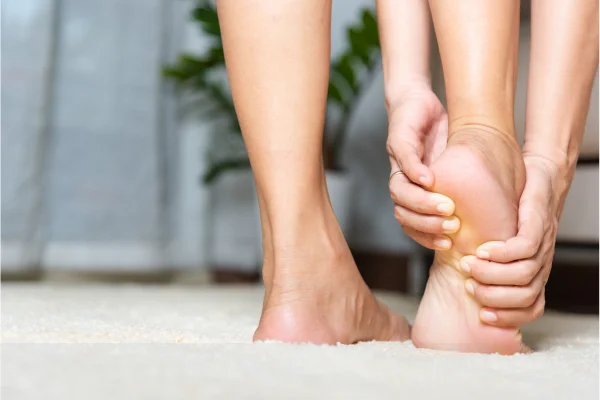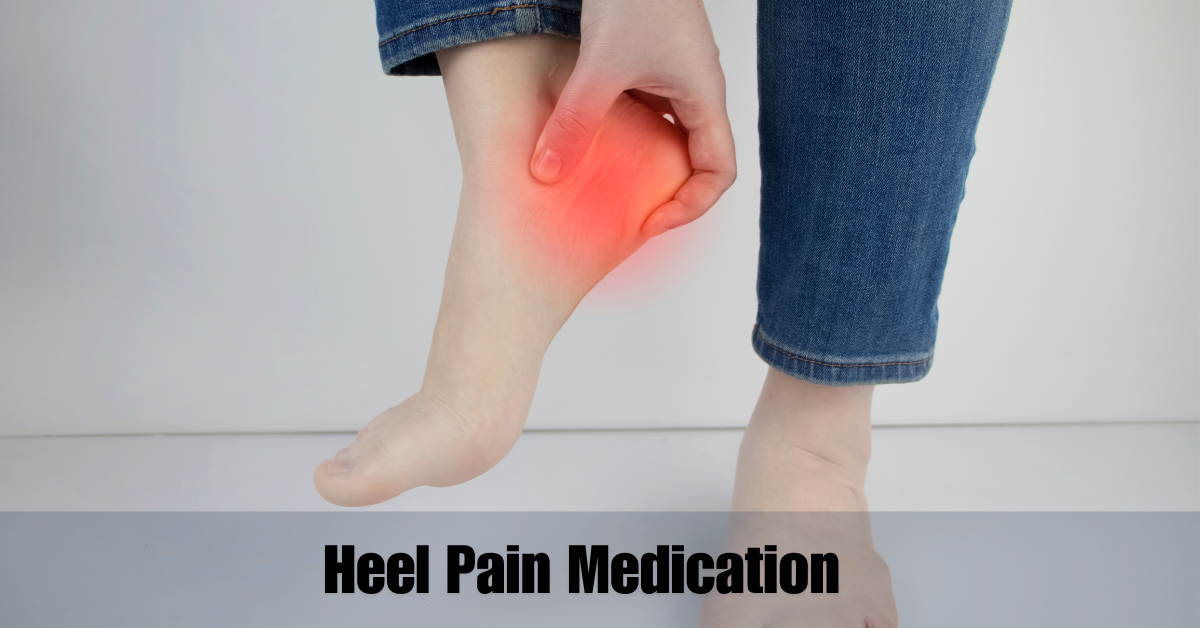Heel pain is a common issue that many people experience, affecting their daily activities and overall quality of life. Whether you’re an athlete, someone who stands for long hours, or simply dealing with age-related discomfort, heel pain can be a persistent and frustrating problem. In this comprehensive guide, we’ll explore various medication options available for heel pain relief, diving into effective treatments, and offering insights into how you can manage this condition.
Heel pain can feel like a sharp, stabbing sensation or a dull ache. It often occurs under the heel or just behind it, where the Achilles tendon attaches to the heel bone. The discomfort can make walking and standing painful, significantly affecting daily life. Let’s dive into the common causes and explore the medication options that can bring relief.
Common Causes of Heel Pain

Understanding the root cause of your heel pain is crucial for effective treatment. Common causes include:
- Plantar Fasciitis: Inflammation of the plantar fascia, a thick band of tissue that runs across the bottom of your foot and connects your heel bone to your toes.
- Heel Spurs: Bony growths on the underside of the heel bone.
- Achilles Tendinitis: Inflammation of the Achilles tendon.
- Bursitis: Inflammation of the fluid-filled sacs that cushion the bones and tendons.
- Stress Fractures: Tiny cracks in the heel bone caused by repetitive force or overuse.
Types of Heel Pain Medications
There are several medication options available for treating heel pain, ranging from over-the-counter solutions to prescription medications. The choice depends on the severity of the pain and the underlying cause.
Over-the-Counter (OTC) Options
For mild to moderate heel pain, OTC medications are often the first line of defense. They include:
- Nonsteroidal Anti-Inflammatory Drugs (NSAIDs): These medications, such as ibuprofen and naproxen, reduce inflammation and alleviate pain.
- Acetaminophen: Helps relieve pain but does not have anti-inflammatory properties.
- Pain Relief Creams and Gels: Topical treatments like creams, gels, and sprays can be applied directly to the painful area for localized relief.
Prescription Medications
When OTC options aren’t enough, prescription medications may be necessary. These include:
- Corticosteroids: Powerful anti-inflammatory drugs that can be taken orally or injected directly into the affected area for quick relief.
- Muscle Relaxants: These can help reduce muscle tension and alleviate pain.
- Narcotic Pain Relievers: In severe cases, doctors may prescribe narcotic pain relievers for short-term use.
Topical Treatments
Topical treatments, including creams, gels, and patches, are applied directly to the skin over the painful area. They offer localized relief and can be used alongside oral medications. Popular ingredients include:
- Capsaicin: Derived from chili peppers, capsaicin cream can help reduce pain by desensitizing nerve receptors.
- Lidocaine: A numbing agent that blocks nerve signals in the body, providing temporary pain relief.
Alternative Therapies
For those looking for non-medication options, alternative therapies can be beneficial:
- Physical Therapy: Exercises to stretch and strengthen the muscles and tendons in the foot and ankle.
- Orthotics: Custom shoe inserts that provide support and alleviate pressure on the heel.
- Acupuncture: An ancient practice that involves inserting thin needles into specific points on the body to relieve pain.
When to See a Doctor
If your heel pain persists despite over-the-counter treatments and home remedies, it may be time to consult a healthcare professional. Seek medical attention if:
- The pain is severe and worsening.
- You experience swelling, redness, or warmth in the heel area.
- The pain persists for more than a few weeks.
- You have difficulty walking or bearing weight on the affected foot.
Preventive Measures
Preventing heel pain involves taking proactive steps to reduce the risk of injury and overuse. Consider these preventive measures:
- Wearing Proper Footwear: Choose shoes that provide adequate support and cushioning.
- Maintaining a Healthy Weight: Excess weight can put extra strain on your feet.
- Stretching Regularly: Stretch your calves, Achilles tendon, and plantar fascia to maintain flexibility.
Lifestyle Changes and Exercises
Incorporating certain lifestyle changes and exercises into your routine can help manage and prevent heel pain. Some effective strategies include:
- Low-Impact Activities: Engage in activities like swimming or cycling to avoid putting excessive pressure on your heels.
- Foot Strengthening Exercises: Exercises like toe curls and heel raises can strengthen the muscles in your feet and ankles.
- Rest and Recovery: Allow time for rest and recovery, especially after high-impact activities.
Conclusion
Heel pain can be a challenging condition to manage, but with the right approach, relief is possible. By understanding the causes and exploring various medication options, you can find a treatment plan that works for you. Remember to consult with a healthcare professional for a personalized approach, especially if your symptoms persist or worsen.
FAQs
1. What Is The Most Effective Over-the-counter Medication For Heel Pain?
NSAIDs like ibuprofen and naproxen are commonly used to relieve heel pain due to their anti-inflammatory properties.
2. can Heel Pain Be A Sign Of A More Serious Condition?
Yes, persistent or severe heel pain can indicate conditions like plantar fasciitis, stress fractures, or even nerve damage. Consult a doctor for a proper diagnosis.
3. Are There Any Natural Remedies For Heel Pain?
Yes, natural remedies like ice therapy, stretching, and using orthotic inserts can provide relief. However, always consult with a healthcare provider before starting any new treatment.
4. How Long Does It Take For Heel Pain To Heal?
The healing time for heel pain varies depending on the cause and treatment. It can range from a few days to several months.
5. When Should I Consider Surgery For Heel Pain?
Surgery is usually considered a last resort when conservative treatments fail to provide relief and the pain significantly affects daily life.

